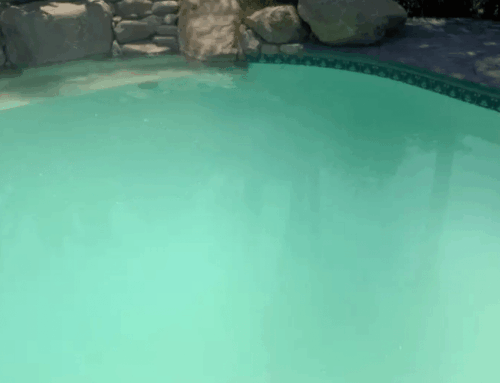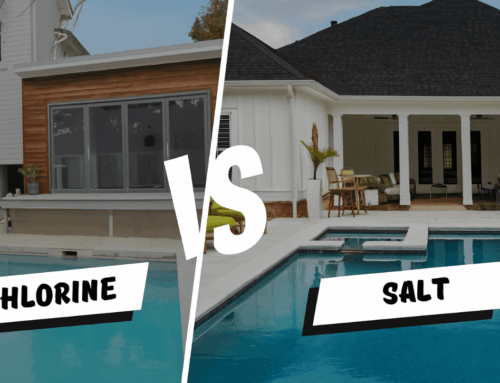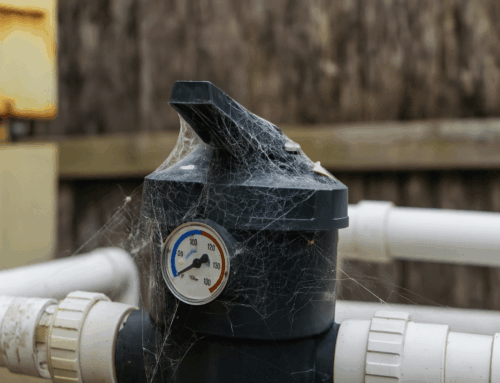Having a sparkling clean pool from start to finish of your swimming season doesn’t have to be a complicated task when you have the right tools and know-how. Pool cleaners are one of the most important pieces of equipment for your pool, and with so many models and types to choose from, such as robotic pool cleaners and suction pool cleaners, it can be difficult to know what to buy.
Pool cleaners can vary significantly in their functions, cleaning style, how they move around your pool, their power, speed, and price. Whether you own a small above ground pool or large in ground pool, the right pool cleaner for your pool will make your regular pool maintenance more straightforward, keep your pool water crystal clear, and reduce how much elbow grease you have to put in to keep dirt and debris at bay.
In this guide, we will cover the various pool cleaner types, features, and options available so you can select the best cleaner for your pool type, shape, size, and budget.
Types of Pool Cleaners
The first step in understanding what pool cleaner should I buy is learning about the main types of pool cleaners available. A pool cleaner’s type describes how it functions with your pool’s filtration system, pump system, and all of the surfaces inside the pool.
1. Robotic Pool Cleaners
Robotic cleaners are self-contained units that do not rely on your pool pump. They have their own motor and filter and operate by scanning the pool floor, walls, and waterline to offer full cleaning coverage.
Robotic pool cleaners are independent of the filtration system, which can prolong the life of your pool’s pump and filters. They are also more energy-efficient than some pressure cleaners and save money as they run on a low-voltage motor that uses a fraction of the energy of traditional suction cleaners. Robotic pool cleaners use smart navigation technology to cover 90–95 percent of the pool, and the latest models move more quickly around the pool to ensure an even and deep clean.
Cleaning times can vary based on model and pool size, with robotic pool cleaners able to clean a pool as quickly as 1 to 3 hours. They can save energy by working independently of the pool’s filtration system, putting less strain on it.
Advantages:
- High cleaning power with advanced navigation
- Can climb walls and clean the entire pool’s surface
- Ideal for larger pools or unique pool shapes
- Collects dirt and debris in its own filter canister, so it does not clog your pool filter
- Energy efficient compared to some pressure cleaners, using a low-voltage motor that consumes significantly less energy than traditional suction pool cleaners
- Typically lasts about 5 to 8 years, with premium models having even longer lifespans if well maintained
Best for: Pool owners who want minimal effort, top cleaning performance, and less strain on their pool equipment.
2. Suction Pool Cleaners
Suction cleaners plug into your pool’s skimmer basket or use a dedicated suction line. Suction pool cleaners harness the suction power of your pool pump to navigate and collect debris as they travel around the pool.
Suction pool cleaners are particularly good at collecting small debris such as dirt and sand and work only when the pool pump is in operation, which can make a significant difference in your energy use. Suction side and pressure side pool cleaners both clean the pool for as long as the pump is running. Cleaning times will vary depending on the model and pool size, with both suction and pressure pool cleaners taking several hours to complete a cleaning cycle.
Advantages:
- Affordable and widely available
- Effective for small to medium debris
- Works well with most residential pools
Considerations:
- Relies on your pool pump, which can increase wear if run for long periods
- Less effective at picking up large debris
- May require more maintenance than robotic cleaners
- Suction pool cleaners typically last between 3 to 5 years, while robotic pool cleaners last about 5 to 8 years.
- Suction cleaners can stall or get tangled during operation, requiring user intervention.
Best for: Pool owners looking for an economical option and who don’t mind occasional manual cleaning for larger debris. Suction pool cleaners take about 4-6 hours to clean a pool, making them suitable for those who can accommodate longer cleaning cycles.
3. Pressure Pool Cleaners
Pressure side pool cleaners plug into a return jet or use a separate booster pump for propulsion. These pool cleaners operate under water pressure that is used to collect large debris and keep it inside an onboard bag separate from your pool’s filtration system.
Pressure cleaners are specifically made for medium to large debris, such as leaves and twigs, and may or may not require a booster pump to run. Cleaning times will depend on the model of pressure pool cleaner and pool size, with cleaning cycles usually taking about 2-3 hours to complete.
Advantages:
- Great for collecting large debris like leaves and twigs
- Reduces strain on your pool filter
- Works well for pools with heavy debris from nearby trees
- Requires regular emptying of attached bags for proper operation
- Requires a booster pump in many cases
- Higher initial cost than suction cleaners
- Pressure cleaners often require more maintenance than suction cleaners due to their complex mechanisms
- Requires a booster pump in many cases
- Higher initial cost than suction cleaners
Best for: Larger pools or properties with lots of leaf litter and debris around the pool.
4. Manual Pool Cleaners
Manual pool cleaners include vacuum heads that attach to a telescopic pole and your pool’s pump system. These cleaners are manually operated and require the user to do the physical work involved in pool cleaning.
Suction pool cleaners are often lighter and less involved to set up than pressure pool cleaners and may make a convenient choice for some pool owners.
Advantages:
- Lowest cost option
- Full control over cleaning specific areas
- No extra moving parts to break down
Considerations:
- Requires time and effort
- Less practical for larger pools or busy pool owners
Best for: Smaller pools or as a backup for other pool cleaners.
Key Pool Cleaner Features to Consider
As you begin to compare and contrast the popular pool cleaners, consider the specific pool cleaner features that will save you the most time and energy and keep your pool sparkling clean all season long.
- Cleaning Cycle Time – Robotic cleaners can have fast cycles for quick touch-ups or longer deep-clean cycles.
- Climb Walls Capability – Important for in ground pools to keep walls free from algae and dirt.
- Debris Handling – Some cleaners excel at picking up fine dirt, while others collect large debris like leaves.
- Coverage – Full cleaning coverage ensures your cleaner can handle the entire pool including the floor, walls, and waterline.
- Energy Efficiency – Modern robotic cleaners are more efficient than older models or systems that rely heavily on your pool pump.
- Ease of Maintenance – Look for easy-access filter canisters or bags, quick-release handles, and straightforward parts replacement.
Matching the Right Cleaner to Your Pool
Choosing the right pool cleaner depends on your pool type, size, and how much debris you typically get.
- Smaller pools – A simple suction cleaner or manual cleaner may be enough.
- Larger pools – Robotic cleaners or pressure cleaners with full coverage are ideal.
- Above ground pools – Look for lightweight cleaners designed for above ground use.
- In ground pools – A cleaner with wall-climbing ability and strong suction power will ensure proper maintenance. Robotic pool cleaners typically have a longer operational lifespan compared to suction or pressure cleaners, making them a durable choice for long-term use. Additionally, robotic cleaners do not remain in the pool 24/7, making them an aesthetically pleasing option for pool owners who dislike seeing hoses and cleaners in their pool.
Also consider your pool surroundings. If you have overhanging trees, a cleaner that can collect large debris is essential. If you want to reduce more maintenance and save time, a high-quality robotic cleaner is worth the investment.
Pool Cleaner Maintenance Tips
As with any pool equipment, proper pool maintenance will keep your cleaner operating for longer and help ensure your pool equipment is in good working order. If a cleaner has a good warranty, it can be a lifesaver when it comes to saving on future pool cleaner repairs.
- Empty debris bags or filter canisters regularly to maintain suction power.
- Inspect the brushes, tracks, and hoses for wear. Replace parts as needed.
- Check the pool’s filtration system to ensure optimal water flow.
- Store cleaners out of direct sunlight when not in use to prevent UV damage.
- Follow manufacturer cleaning cycles and maintenance recommendations.
Cost Considerations
Automatic pool cleaners vary in price:
- Manual vacuums: low cost, starting from under $100
- Suction side pool cleaners: mid-range, $200–$500
- Pressure cleaners: $400–$800 (plus possible booster pump costs)
- Robotic pool cleaners: $800–$2,000+
While robotic cleaners have a higher upfront cost, they often save money over time through reduced pool maintenance, better energy efficiency, and less strain on the pool’s filtration system. Using robotic pool cleaners can lower pool running costs by up to 83 percent compared to other cleaners. They are also known for their energy efficiency, significantly lowering energy bills when compared to suction-side cleaners. Robotic pool cleaners tend to have a higher initial cost compared to suction and pressure cleaners, but their durability and energy savings can justify the investment.
Why the Right Cleaner Matters
Selecting the right pool cleaner ensures your pool water is healthy and free from algae and bacteria, with less dirt and debris floating around. A pool cleaner will also allow you to get on with swimming fun instead of endless manual scrubbing and scrubbing.
In addition, the right cleaner for your pool will lead to less frequent maintenance tasks and lower the risk of expensive repair jobs to pumps, filters and pool surfaces.
A cleaner pool is also safer, more attractive, and more enjoyable for your family every day of the year. With the right cleaner you can be sure that your swimming pool is ready for the next splash.
Final Thoughts
The best way to select the right pool cleaner is to first consider your pool type, your own cleaning needs and preferences, and your budget. There are many great options on the market with robotic pool cleaners and both suction and pressure models.
At 1 Pool Care, we specialise in assisting Perth pool owners to choose the right cleaner for their pool, and to install and service their system to ensure it works as well as possible. We service both in ground and above ground pools for residential or commercial facilities, and can offer expert advice, professional installation and ongoing cleaning and maintenance to keep your pool sparkling clean all year round. We stock and service a full range of popular pool cleaners, including robotic pool cleaners.
If you are unsure of what type of pool cleaner to buy, or would like a cleaner that will work in harmony with your pool’s filtration system, call 1 Pool Care today. We can recommend the right cleaner model for your needs, set it up to work efficiently, and help you to spend less time cleaning and more time enjoying your pool.

With over 20 years of industry experience, Adrian Mole is the founder of 1 Pool Care, a leading mobile pool service in Perth. Known for his expert knowledge and reliable service, Adrian delivers professional pool cleaning, equipment repairs, and water balancing across the metro area. Backed by SPASA accreditation, he’s committed to quality, convenience, and customer satisfaction.











Social Media